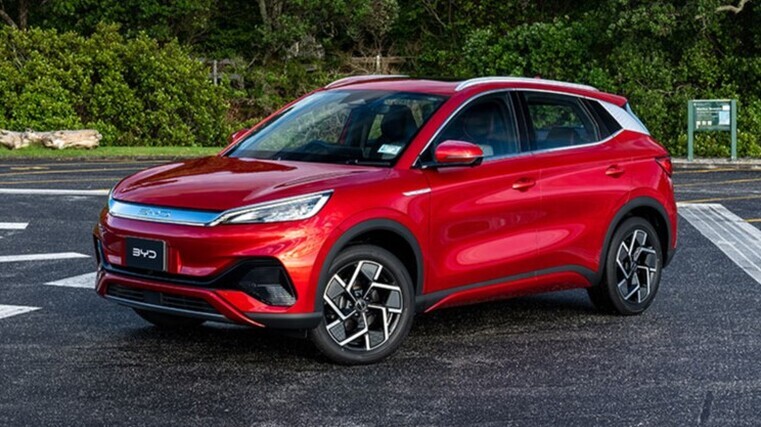RUC risk ‘collapsing’ EV market

BYD Auto New Zealand has warned the government that plans to introduce road user charges (RUC) on light electric vehicles from the start of April will contribute to the “complete collapse” of the market for such models.
It predicts any demise of battery electric vehicle (BEV) and plug-in hybrid (PHEV) sales will lead to dealerships closing, job losses, marques stalling on launching new models in New Zealand and some new brands staying away altogether.
The grim picture has been painted by Ateco Automotive NZ, which trades as BYD Auto NZ, in a submission to the government’s transport and infrastructure select committee.
Tesla has also had its say and its submission recommends revenue from the charges for BEVs should be used to fund a rebate on newly imported EVs that is “based on the clean car discount (CCD) without the so-called ute tax”.
An amendment bill that will end the exemption from RUC for BEVs and PHEVs had its first reading in Parliament this month and the committee is now preparing a report for politicians after receiving 518 written submissions on the proposals.
Under the draft legislation, owners of BEVs will have to pay $76 per 1,000km travelled – the same rate that applies to light diesel vehicles.
Meanwhile, drivers of PHEVs will be charged a lower rate of $53 to recognise they also pay fuel excise duty on petrol.
In a single-page submission on the Road User Charges (Light Electric RUC Vehicles) Amendment Bill, BYD says it supports all road users paying their fair share of road tax.
“However, the introduction timing of RUC for BEVs and PHEVs is contributing to the complete collapse of the electrified vehicle market,” it continues.
“With the removal of the clear car discount fees, RUC are seen as a huge barrier in buyers’ minds.
“This collapse will contribute to dealerships closing, job losses, and planned new plugged-in model launches will have to be considered if it’s still viable to proceed.
“New BEV brands considering entering the NZ market to bring more affordable EVs to market are also reconsidering the viability of doing business in New Zealand.”
BYD adds it was planning to soon introduce its new “Super PHEV” hybrid technology here in the form of an SUV and a ute.
The technology means vehicles have three odometers – one for the whole vehicle, another to record the electric-only kilometres and a third for the distance travelled using petrol.
“We may decide not to bring these models to market now, as buyers think RUC make the vehicles uncompetitive,” the company says.
Its main recommendation to the select committee is that RUC for BEVs and PHEVs be delayed and for all vehicles to have the charges introduced at the same time, which the government says it plans to eventually do.
BYD says if RUC on PHEVs are introduced from April 1, then cars with tamper-proof odometers showing the distance covered using just electric power should only be charged for those kilometres.
“Paying both petrol excise duty at the pump and RUC is overtaxing, and the cars can easily show any enforcement/compliance officer the exact kilometres travelled on EV only for the vehicle’s entire life,” it explains
It is also calling for the NZ Transport Agency to get rid of paper-based labels for the charges, noting its cars have full internet capability and owners can update regos, RUC and more online through a vehicle’s infotainment screen.
Tesla’s rebate plea
Tesla says it does not oppose EVs paying towards the cost of the road network, like any other vehicle, but also urges Parliament to consider the cumulative effect of recent policy changes.
“The removal of the successful CCD programme has reduced EV registrations by 80 per cent in the first two months of 2024, compared to the 2023 monthly average,” its submission points out.
“This has increased the average [carbon dioxide] emissions of newly registered light vehicles by 20 per cent, with average emissions of 165g/km so far in 2024 exceeding the clean car standard (CCS) target.
“In the space of a few months, New Zealand has moved from being a leader in EV adoption to one of the lowest in the developed world.”
Tesla notes BEVs made up three per cent of new light vehicle registrations in February, which was down from 20 per cent in December and compared to 10 per cent in Australia for the same period.
It cautions that adding RUC to EVs will further impact the adoption of zero-emissions models.
“This will be compounded by the fact that some pure internal combustion engines, as well as non-plug-in hybrids and plug-in hybrids, will effectively face lower total road tax than pure EVs because of their low petrol consumption and discounted RUC rate.”
The prospect of the weakening of emissions targets following the government’s planned review of the CCS further darkens the outlook for cutting transport emissions in New Zealand, according to the company.
“We recommend, therefore, that Parliament amend this bill to prevent a further drift away from New Zealand’s legislated climate targets,” it adds.
“RUC revenue from EVs should be used to fund a rebate on newly imported EVs Based on Climate Change Commission modelling of light passenger EV kilometres travelled, these vehicles will pay over $540 million in RUCs by the end of 2027, enough to pay rebates at the previous CCD levels for 77,000 new EVs or 155,000 used EVs.
“Rebates do not need to be permanent and can be phased out by 2030.”
It adds the proposed discounted RUC rate for PHEVs should be removed and all petrol vehicles brought into the charging system, replacing fuel excise duty, as soon as possible.
Call to reduce charges
A joint submission to the committee from the Motor Industry Association, Imported Motor Vehicle Industry Association, Motor Trade Association, AA, Drive Electric and Better NZ Trust also calls for the government to rethink its plans.
As reported by Autofile Online this week, they want to see a reduction in the RUC to $60 per 1,000km for BEVs and $42 for PHEVs, claiming the current proposals are “not fair or equitable”.





